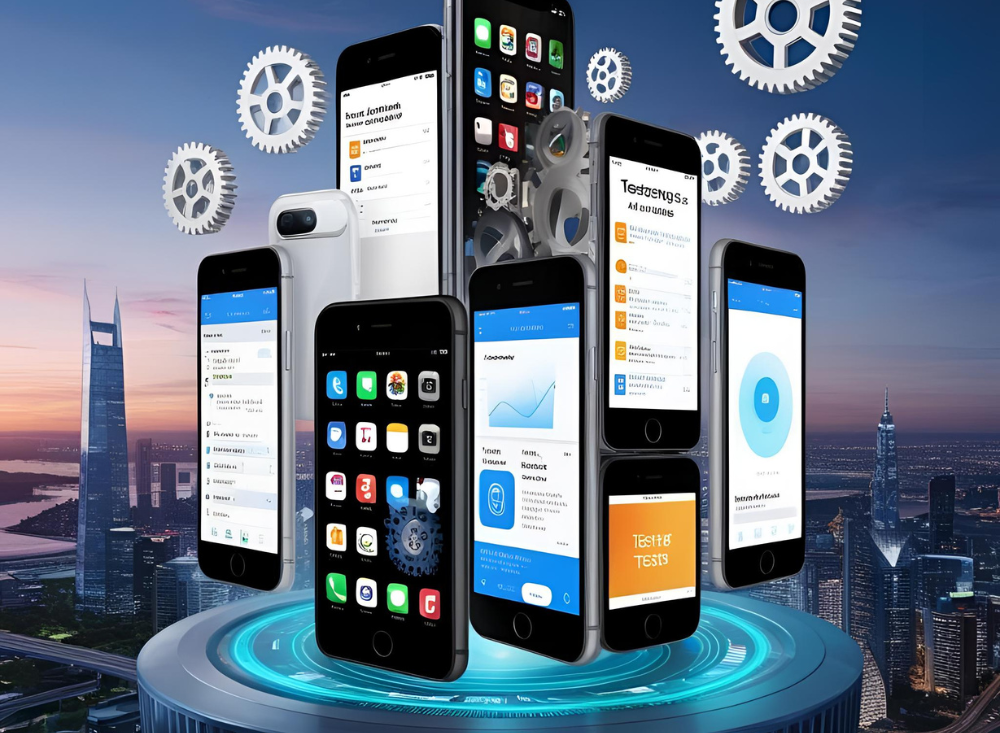
Traditional mobile app testing has often been a complex, time-consuming process. With the proliferation of devices, operating systems, and user behaviors, ensuring consistent app performance across all scenarios has become increasingly challenging. Manual testing and script-based automation struggle to keep pace with rapid development cycles, leading to delayed releases and compromised user experiences.
In response to these challenges, the industry is embracing innovative solutions that offer:
- Low-Code Test Automation: Simplifying test creation and maintenance.
- AI-Driven Workflows: Enhancing test generation, execution, and debugging.
- Cross-Platform Support: Ensuring seamless testing across diverse frameworks and devices.
Genqe.ai embodies these advancements, providing a comprehensive platform that addresses the complexities of modern mobile app testing.
Embracing Low-Code Test Automation
Low-code platforms are revolutionizing test automation by enabling testers to create and manage tests with minimal coding effort. This approach democratizes testing, allowing team members with varying technical backgrounds to contribute effectively.
Benefits of Low-Code Automation
- Accelerated Test Development: Rapidly create test cases without extensive programming knowledge.
- Enhanced Collaboration: Facilitate better communication between developers, testers, and business stakeholders.
- Reduced Maintenance Overhead: Easily update tests in response to application changes.
By adopting low-code automation, teams can streamline their testing processes, reduce errors, and accelerate time-to-market.
Leveraging AI-Powered Workflows
Artificial Intelligence (AI) is reshaping the landscape of mobile app testing by introducing intelligent automation and predictive analytics. Genqe.ai harnesses AI to enhance various aspects of the testing lifecycle.
AI-Driven Capabilities
- Automated Test Case Generation: Utilize AI to create comprehensive test cases based on application behavior and user interactions.
- Self-Healing Tests: Automatically adapt tests to changes in the application’s UI or functionality, reducing manual intervention.
- Predictive Defect Analysis: Identify potential issues before they impact users by analyzing historical data and usage patterns.
- Natural Language Processing (NLP): Allow testers to write test scenarios in plain English, which are then converted into executable tests.
These AI-powered features enable more efficient, accurate, and scalable testing, ensuring higher quality applications.
Ensuring Cross-Platform Compatibility
In today’s diverse technological ecosystem, applications must perform consistently across various platforms and devices. Genqe.ai addresses this need by offering robust cross-platform testing capabilities.
Cross-Platform Testing Features
- Multi-Device Support: Test applications on a wide range of devices, including smartphones, tablets, and emulators.
- Framework Agnosticism: Support for applications built with different frameworks such as React Native, Flutter, and native development tools.
- Consistent User Experience: Ensure uniform functionality and performance across all platforms.
By facilitating comprehensive cross-platform testing, Genqe.ai helps teams deliver reliable applications to a broader audience.
Real-World Applications and Benefits
Organizations across various industries are leveraging Genqe.ai to enhance their mobile app testing strategies.
E-Commerce
Retailers use Genqe.ai to test complex user journeys, such as product searches, shopping cart operations, and payment processing, ensuring a seamless shopping experience.
Healthcare
Healthcare providers rely on Genqe.ai to validate critical functionalities in patient management systems, maintaining compliance with regulatory standards and safeguarding patient data.
Finance
Financial institutions employ Genqe.ai to test secure transactions, account management features, and compliance workflows, ensuring the integrity of sensitive financial operations.
Across these sectors, Genqe.ai delivers:
- Improved Test Coverage: Comprehensive testing across various scenarios and user interactions.
- Faster Release Cycles: Accelerated testing processes leading to quicker deployments.
- Enhanced Application Quality: Early detection of defects and performance issues.
- Cost Efficiency: Reduced manual testing efforts and associated costs.
Integrating with Development Workflows
Genqe.ai seamlessly integrates with existing development and deployment pipelines, supporting continuous integration and continuous deployment (CI/CD) practices.
Integration Capabilities
- CI/CD Tools: Compatibility with popular tools like Jenkins, GitLab CI, and GitHub Actions.
- Version Control Systems: Integration with systems such as Git for streamlined collaboration.
- Defect Tracking: Connectivity with issue tracking tools like Jira for efficient bug management.
These integrations ensure that testing is an integral part of the development lifecycle, promoting agility and responsiveness.
Embracing the Future of Mobile App Testing
As mobile applications continue to evolve, the need for efficient, reliable, and scalable testing solutions becomes increasingly critical. Genqe.ai stands at the forefront of this transformation, offering a platform that combines low-code simplicity, AI-driven intelligence, and cross-platform versatility.
By adopting Genqe.ai, organizations can
- Accelerate Development Cycles: Reduce testing time and speed up releases.
- Enhance Application Quality: Identify and address issues proactively.
- Optimize Resource Utilization: Minimize manual efforts and associated costs.
- Adapt to Changing Requirements: Quickly respond to evolving user needs and technological advancements.
In embracing Genqe.ai, teams position themselves to meet the demands of modern mobile app development, delivering high-quality applications that resonate with users and stand out in a competitive market.